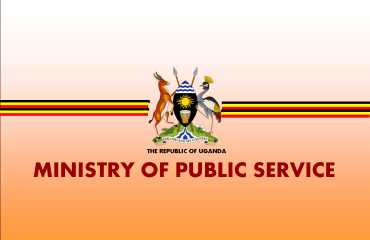

Stakeholders consultative ‘ workshop on Establishment Management at Civil Service College – Jinja from 22nd October 2018

STAKEHOLDER’S CONSULTATIVE MEETING ON ESTABLISHMENT MANAGEMENT POSE FOR A GROUP PHOTO AFTER THE MEETING AT CIVIL SERVICE COLLEGE -JINJA ON 26TH OCTOBER 2018
MINISTRY ORGANISED A STAKEHOLDER’S CONSULTATIVE WORKSHOP ON ESTABLISHMENT MANAGEMENT AT CIVIL SERVICE COLLEGE-JINJA FROM 22ND – 26TH OCTOBER 2018
A week long stakeholder’s consultative workshop on Establishment management business processes has ended with a major resolution of a reduction in the business process to eliminate the waste, delays, and unnecessary costs if government structures are to remain relevant to Public Service.
Earlier on, the Acting Director Bob Sifuna said that although the exercise is strenuous, but it operates on evidence based scientific information data/tool analysis which is critical if Public Service need to deliver public services through improved structures. On the simulation training, he emphasized that it was critical for re engineering systems even at a personal level, and also thanked the Project Manager Robert for the skills and identifying resources to enable this very important interaction to take place.
While closing the meeting, Fredrick Edward Walugembe Commissioner, Planning and Monitoring who represented the Permanent Secretary hailed the participants for their hard work, commitment and concerted effort displayed during the business process to improve service delivery.
Walugembe said that the training in simulation, analysis, mapping and documenting of the business process using a proven scientific approach of Lean sigma technique and tools gives the confidence and assurance of a good product and an improved process.
He also added that effective establishment management is a cornerstone of strong institutions. “therefore, this is a positive step in the right direction towards streamlining establishment management in particular and in general Human Resource Management business processes for enhancing service delivery.”
The Ministry planned a consultative workshop on Establishment Management at Civil Service College Jinja, with representatives drawn from different institutions to map, analyze, and document business processes in the Public Service.
This is part of the on-going process to streamline Human Resource Management business processes in preparation of the implementation of the Human Capital Management System.
Among the bottlenecks identified was the lack of capacity of Local Governments to pay salaries and Pensions. Recommendations were made that the District Executive Committee (DEC) be regarded as the cabinet at that level if processes, decisions that affect business processes were to improve
Others were; to implement the e-documentation, to improve the movement of correspondences that would not replace completely the hard copy practice in government, but adopt strategic control of wage and therefore need to manage and regulate recruitments that are not backed up with wage. District Councils have been identified as key bottlenecks in the business processes as their decisions entirely depend on sittings that could only be done with availability of Allowances and only happen once every two months.
End.









